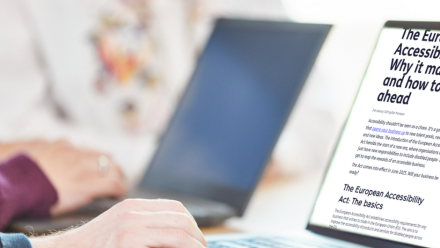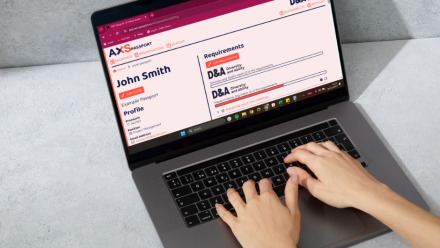“I’d rather keep my head down than risk disclosing”: how to make healthcare more inclusive for disabled learners and workers
20th July 2022 by Ellie Thompson
“I’d rather keep my head down than risk disclosing”
In 2021, 3.5% of NHS staff disclosed a disability on the electronic staff register (Workforce Disability Equality Standard, 2021).
In the same year, 19% of staff respondents shared their disability in an anonymous survey (British Medical Association, 2021).
Disabled healthcare trainees and professionals exist. So why aren’t they sharing their diversity with their employer? More importantly, what can we do to let disabled people know that doing so will be welcomed, supportive and productive?
Diversity and Ability have been working with Health Education England to improve the experiences of disabled healthcare trainees and professionals, creating a comprehensive and inclusive guide to Disabled Students’ Allowance and Access to Work.

It’s been great to see the toolkit in action, working to guide disabled learners and professionals through the process of accessing the support they’re entitled to, but also providing the insight and information that enables supervisors, line managers and HR professionals to better support their disabled team members.
However, we know that more needs to be done to make these environments more inclusive, accessible and positive.
A dual approach: inclusion training and tools.
The answer lies in a dual approach, where we combine the provision of our toolkit with the development of training, tools and techniques that dismantle biases, tackle discrimination and transform culture.
And what do disabled students and professionals, and other stakeholders from throughout the NHS, think about this?
From December 2021 to January 2022, we conducted a series of roundtable discussions to learn the experiences and insights of disabled people and stakeholders. The outcome of this research seems to confirm our theory: a dual approach holds the key to fostering inclusion for disabled people within the NHS:
“This is very much needed and it can’t come soon enough.”
You can hear exactly what they had to say, and what it tells us about the current landscape for disabled people in the NHS, in our full research report.


